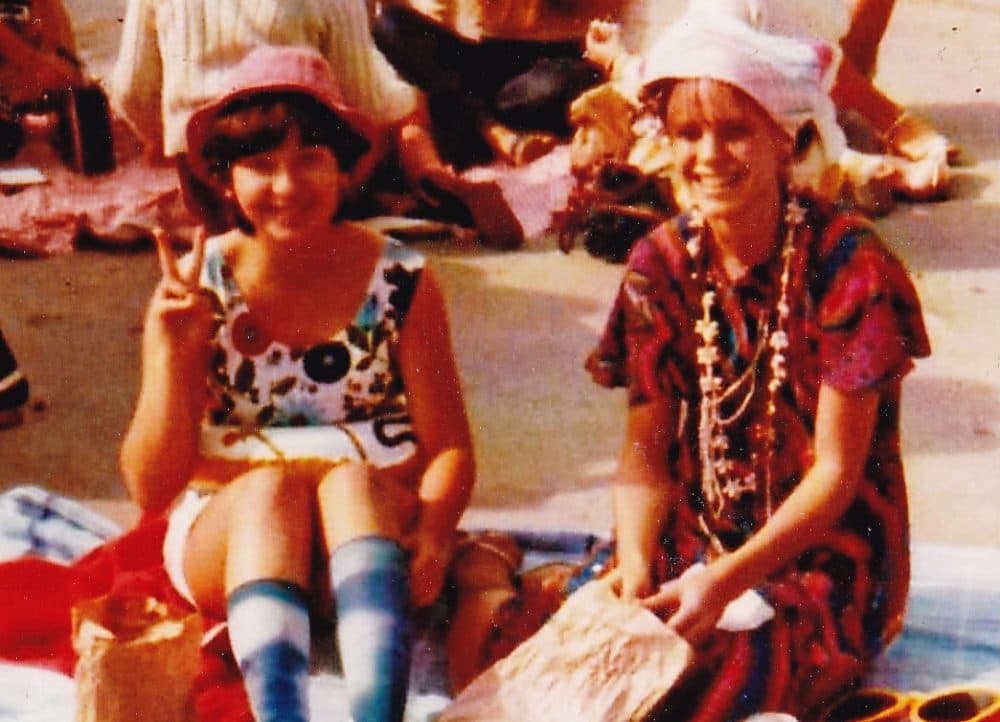Advertisement
Iranian-American Author Turns Childhood Hardships Into Comedy
Resume
Best-selling author Firoozeh Dumas emigrated to the U.S. from Iran as a child, and grew up a typical Southern California girl. But then came the Iranian Revolution and hostage crisis, and people started treating her family differently.
Her father lost his job, and her family felt less safe outside of their house. Now Dumas has turned those experiences into a humorous young adult novel that seeks to help kids deal with feeling different or left out.
Here & Now's Lisa Mullins talks with Dumas about her life growing up and her new book, "It Ain’t So Awful, Falafel."
Interview Highlights:
On the inspiration for the book
"Most Americans that we encountered had never heard of Iran, so we spent a lot of time answering questions about camels, which is fascinating to us because I have only seen the camels once in my life and it was in a zoo. And I would tell people, 'no. we don't ride camels. My father actually has always had a Chevrolet.' But when the American hostages were taken, all the sudden there was this anti-Iranian sentiment that just swamped the nation. In real life, i was about 13 when that happened. And I was the only kid out of my school whose country had just had a revolution. So there was a lot that I could share with absolutely no one, and hence, the book."
On 'culture shock' in America
"When we first came to America, we would be walking down the streets, and somebody coming towards us would say 'hello.' And automatically, we say hello back and then we spent ten minutes going, 'Wait, who are those people? where did we meet them? how did they know us?' And it wasn't until I finally figured it out that in America, people say hello to perfect strangers.
But it absolutely was like such a puzzle for us, because when you move to America, you don't get this guidebook on Americans. You need to figure it out yourself. And I was very happy to figure that out, and I went on to become, like, the most friendly American. I'd say, 'Hello, how are you? What a sunny day? Oh, isn't it lovely today?' I would just have conversations with every stranger I could find."
On life in the U.S. during the Iran hostage crisis
"Certainly it's a long time to be a hostage. It's a long time for their families. It's a long time for the country. It's a long time for us, because our life just ended when the hostage situation started. And every day there was just more and more of this hatred towards Iranians, and we just knew that in a way that our life was being held hostage as well, because nobody wanted to hire my father. To be an Iranian man at the time in the America looking for a job was an absolutely hopeless situation. [He lost his job] and he couldn't find another one.
That was probably one of the hardest things I have every gone through as a kid, because my father had always worked... To have him just sitting on the sofa when I came home from school, that was an incredibly difficult thing to go through. And I really feel for kids. This book is about an Iranian girl in America, but a lot of it is about what it's like to have a parent who's unemployed and who can't find a job. That's difficult for any child — doesn't matter where you're from."
On her hopes for people who read the book
"I really just wrote this book for every person out there in middle school, because I think middle school, [whoever] you are, it is a pretty miserable experience. I just wanted to write a book that gives kids hope because you don't have perspectives when you're 12 years old. You don't know that this too shall pass. And I wanted to write a really funny book that would teach kids some history but that would also leave them feeling hopeful.
I hope that when young adults, middle grades students or high school kids, read this book, it widens their perception of what Iranians are like or what women are like or what Iranian women are like. That would make me very happy, if I expand people's worldview just a little bit."
Guest
Firoozeh Dumas, author of "It Ain’t So Awful, Falafel." She tweets @firoozehdumas.
This article was originally published on September 16, 2016.
This segment aired on September 16, 2016.